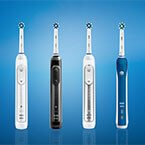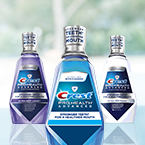BLACK HAIRY TONGUE CAUSES, SYMPTOMS, AND TREATMENTS

- What is Black Hairy Tongue?
- Black Tongue Symptoms
- How To Prevent Black Hairy Tongue?
- Black Hairy Tongue Treatments
What is Black Hairy Tongue?
A black hairy tongue is a temporary and harmless condition that is often caused by an overgrowth of bacteria in your mouth. Certain types of bacteria accumulate on the papillae (the small projections that cover the tongue) and create red blood cell pigments, which can make the tongue look black. And if the normal shedding of the outer layer of cells on the tongue is inhibited, the papillae are larger, and the tongue can appear "hairy." Hairy tongue occurs in people smoking cigarettes or using other tobacco products, drinking too much coffee or tea, and in people with poor oral hygiene. It is much more common in individuals under certain medications. Patients with black tongue symptoms may have trouble tasting food because of changes in taste buds.
Black Tongue Symptoms
Black hairy tongue can happen to anyone. The obvious symptoms of black hairy tongue often include a furry or hairy appearance on the surface of the tongue. But appearance aside, there may be some other possible symptoms of black tongue, including:
- A tickling sensation on the roof of the mouth
- A burning sensation directly on the tongue
- Bad breath
- A metallic taste in the mouth
Black Hairy Tongue Causes
No one knows for sure what causes a black hairy tongue. But some research suggests that it can be caused by a change in the normal bacteria or yeast content in the mouth due to antibiotic use for a medical condition, or by using products that contain bismuth, a chemical element often found in certain cosmetics and pharmaceuticals.
Other possible causes of a black hairy tongue include smoking or using other tobacco products, drinking excessive amounts of coffee or tea, and failing to follow a regular routine of daily oral hygiene.
Ironically, chronic bad breath has not been associated with a black hairy tongue but using certain mouthwashes may increase your risk. Mouthwashes containing astringents (such as menthol or witch hazel), or full-strength oxidizing agents such as peroxide, may increase your risk of developing a black hairy tongue if you use them excessively.
Additionally, individuals with dry mouth symptoms may be more prone to developing black hairy tongue. To help relieve the symptoms of dry mouth, try swishing with Oral-B Dry Mouth Special Care Oral Rinse, it’s scientifically formulated to provide immediate relief for up to 6 hours.
How To Prevent Black Hairy Tongue?
A good oral hygiene routine can help limit the chances of developing black hairy tongue symptoms. A lower sugar intake and regular visits to your dental professional can also help in preventing black hairy tongue.
You can also try:
- Drink less caffeinated drinks, such as coffee and tea
- Brush your tongue with a soft toothbrush or with a special tongue scraper
- Speak to your healthcare provider about alternatives to medications that can trigger black hairy tongue
Black Hairy Tongue Treatments
Black hairy tongue usually does not require any special medication. Fortunately, a black hairy tongue will usually resolve if you take these simple steps:
- Brush: Gently brush your tongue with a toothbrush twice a day as part of your daily dental care routine. Once the problem is resolved, it is still a good idea to brush your tongue—you can help prevent the black tongue from coming back.
- Double Rinse: Use a dilute solution of one part hydrogen peroxide to five parts water to rinse your mouth, then rinse again with plain water or change to a non-peroxide mouthwash.
- Avoid Tobacco Products: To help keep your oral health and overall health in good condition, it’s best to quit using tobacco products right away.
Black hairy tongue can be easily resolved with good oral hygiene, a well-balanced diet, and new lifestyle habits. However, if the discoloration of your tongue persists, see your dental professional for proper diagnosis and treatment.






